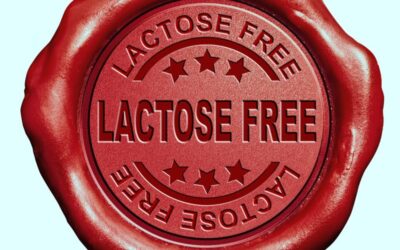Irritable bowel syndrome (IBS) is a common condition that affects the digestive system. It can cause a variety of symptoms, including abdominal pain, cramping, bloating, gas, diarrhoea, and constipation. While the exact cause of IBS is unknown, there are a number of factors that can trigger symptoms, including diet. However, it’s worth noting that there are some non-FODMAP triggers for IBS symptoms too.
So, firstly, what is the low FODMAP diet? The FODMAP diet is a dietary approach that has been shown to be effective in reducing symptoms of IBS. It’s heavily researched worldwide, so known as an ‘evidence-based’ dietary intervention. FODMAP stands for Fermentable Oligosaccharides, Disaccharides, Monosaccharides and Polyols. These are types of carbohydrates that are poorly absorbed by the small intestine. When they reach the large intestine, they can be fermented by bacteria, which can produce gas and lead to the all-familiar IBS symptoms.
The FODMAP diet involves eliminating foods that are high in FODMAPs for a period of time, followed by a gradual reintroduction of these foods to identify which foods that trigger symptoms. Whilst the FODMAP diet is a helpful tool for many people with IBS, it is important to note that it is only a temporary diet, not a lifelong diet. However, there are other dietary and non-dietary factors that can also trigger IBS symptoms.
Non-FODMAP dietary triggers for IBS symptoms
In addition to FODMAPs, there are some other dietary factors that can trigger IBS symptoms. Some of the most common non-FODMAP triggers include:
- Coffee: Coffee can stimulate the digestive system and worsen IBS symptoms, such as diarrhoea
- Alcohol: Alcohol can irritate the gut and therefore worsen IBS symptoms
- Fatty foods: Fatty foods can slow down digestion and worsen IBS symptoms, such as bloating and constipation
- Carbonated drinks: Carbonated drinks can often cause bloating and gas
- Spicy foods: Spicy foods can irritate the gut and worsen IBS symptoms
- Artificial sweeteners: Artificial sweeteners can cause gut problems in some people with IBS
- Sugar alcohols: Sugar alcohols are another type of poorly absorbed carbohydrates that can cause gut problems in some people with IBS
Other potential triggers of IBS symptoms
In addition to diet, there are other factors that can trigger IBS symptoms, including:
- Stress: Stress is a common trigger for IBS symptoms. When you are stressed, your body releases hormones that can affect your digestive system
- Lack of sleep: Lack of sleep can also worsen IBS symptoms
- Hormonal changes: Hormonal changes, such as those that occur during menstruation or pregnancy, can trigger IBS symptoms
- Medications: Certain medications, such as antibiotics, can worsen IBS symptoms
- Medical conditions: Some medical conditions, such as thyroid problems or small intestine bacterial overgrowth (SIBO), can mimic IBS symptoms
The importance of identifying your IBS triggers
If you have IBS, it is important to identify your triggers so that you can avoid them or manage them effectively. Keeping a food and symptom diary can be a helpful tool for identifying your triggers. Once you have identified these, you can develop a plan to manage them. This may involve making changes to your diet, stress management techniques or medication. This can be tricky to manage alone, so seek professional help via an IBS Dietitian or counsellor.
Here are some basic tips for managing IBS symptoms:
- Eat regular meals and snacks: Eating regular meals and snacks can help to regulate your digestive system
- Drink plenty of fluids: Drinking plenty of fluids can help to prevent constipation and dehydration
- Get regular exercise: Exercise can help to reduce stress and improve digestion, especially important with IBS-C
- Manage stress: Stress management techniques that can be helpful for people with IBS, such as yoga, meditation and deep breathing
Conclusion
IBS is a common condition that can cause a variety of digestive symptoms. While the FODMAP diet is a helpful tool for many people with IBS, it is important to note that it is not a diet for life. There are other dietary and non-dietary factors that can also trigger IBS symptoms. If you have IBS, it is important not only to identify FODMAP triggers, but also non-FODMAP triggers for IBS symptoms. By following these tips, you can help to manage your IBS symptoms and improve your quality of life.
Help is just a call away…
Cutting out groups of food isn’t recommended without expert guidance. Advice needs to be practical and to fit into your life, which is where I, as an IBS dietitian trained in FODMAPs come in! I have a wealth of experience in helping IBS sufferers. As an IBS Dietitian, I offer one-to-one advice, helping you through the phases of the low FODMAP diet. This will give you the confidence to finally manage your IBS. So, if you’d like to see if the low FODMAP diet is right for you, let’s chat. I’m based in Cardiff, but via virtual consultations I can work across the UK. Contact me for further information and to book a free initial telephone call. Usually only 3 sessions are necessary, so what are you waiting for? Give me a call today.
Disclaimer: This blog is for informational purposes only and does not constitute medical advice. Please consult with a healthcare professional before making any changes to your diet or lifestyle.




